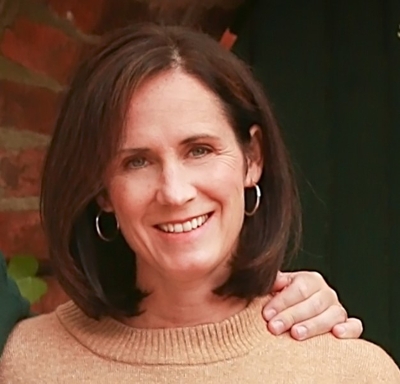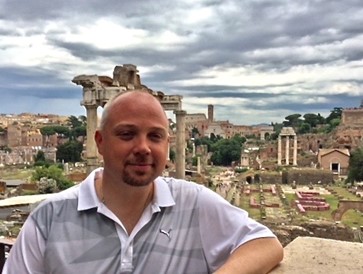World Languages and Cultures Department
- Majors
- Minors and Concentrations
- Faculty and Staff
-
Visiting International Instructors
- Fulbright Language Teaching Assistants and International Instructors 2024-2025
- Fulbright Language Teaching Assistants and International Instructors 2023-2024
- Fulbrights and International Instructors 2022-2023
- Fulbright Language Teaching Assistants and International Instructors 2021-2022
- Fulbright Language Teaching Assistants and International Instructors 2020-2021
- Fulbright Language Teaching Assistants and International Instructors 2019-2020
- Fulbright Language Teaching Assistants and International Instructors 2018-2019
- Highlights
- Language Learning Center
- News and Events
- Study Abroad
- Alumni Spotlight
- Alpha Mu Gamma
- ROTC Foreign Language Proficiency Bonus
- Internships and Experiential Learning
- Latin American and Latinx Studies
- Ambassador Newsletter
- Department Handbook
- World Languages in University Catalog
Contact Us:
- Yamile Silva, Ph.D., Chair
- World Languages and Cultures
- 315 O'Hara Hall
- Scranton, PA 18510
- The University of Scranton
- Phone: 570-941-4014
- yamile.silva@scranton.edu
Alumni Spotlight
Where are they now?
World Languages and Cultures Department alumni are using their language proficiency and skills gained in their language majors and minors in various career fields all over the world. Learn more about a few of our alumni below!
Linda Neilan
 After graduating from the university in 1994 with a double major in Hispanic Studies and Secondary Education, Linda Neilan decided to pursue service full time through the Jesuit Volunteer Corps. Because of her Spanish studies, at Scranton, Linda had enough skills to qualify for and obtain her top volunteer choice: a non-profit law firm in Los Angeles where she spent the majority of her time interviewing immigrants. “Combining my time with the JVC and my Spanish studies, I was able to have even more doors open for me,” Linda said.
After graduating from the university in 1994 with a double major in Hispanic Studies and Secondary Education, Linda Neilan decided to pursue service full time through the Jesuit Volunteer Corps. Because of her Spanish studies, at Scranton, Linda had enough skills to qualify for and obtain her top volunteer choice: a non-profit law firm in Los Angeles where she spent the majority of her time interviewing immigrants. “Combining my time with the JVC and my Spanish studies, I was able to have even more doors open for me,” Linda said.
Linda has since built up quite a resume: teaching Spanish at a Jesuit high school, obtaining her law degree, representing all kinds of workers in New York City, and serving as a foreign service officer in Brazil and Mexico. “Learning a language while at Scranton had a profound impact on the opportunities I’ve since had in the work force.”
Michael Canaris
 Dr. Michael Canaris graduated from the University of Scranton in 2002 with a double major in philosophy and theology as well as a concentration in Italian studies. Since graduating from the University of Scranton, Dr. Canaris has taught or obtained a degree from five more Jesuit institutions outside of the University of Scranton. He currently works at Loyola University in Chicago, coordinating summer graduate programs in Rome.
Dr. Michael Canaris graduated from the University of Scranton in 2002 with a double major in philosophy and theology as well as a concentration in Italian studies. Since graduating from the University of Scranton, Dr. Canaris has taught or obtained a degree from five more Jesuit institutions outside of the University of Scranton. He currently works at Loyola University in Chicago, coordinating summer graduate programs in Rome.
Dr. Canaris described his experience in the university’s language classes, especially those with Dr. Picchietti, as transformative. “Dr. Picchietti really inspired me to not only learn the language, but really immerse myself in the culture and history and food and art of Italy,” Michael said. “This has taken on a really personal dimension to me.”
Elena Habersky
Elena Habersky graduated from the University of Scranton in 2013 as an international studies major and Arabic, theology, and philosophy triple minor and is grateful for the professional and personal opportunities opened to her by her language learning at the university. Elena loves being able to travel, and she knows just how important knowing how to speak the mother language of the country you travel to is. Ultimately, she takes the time to learn basic phrases (e.g. thank you, how much) in languages she’s unfamiliar with if that’s the common language in the country she’s traveling to.

After graduating from the university, Elena obtained a Fulbright in Jordan. One of the main reasons she was able to be placed in Jordan was because of the Arabic skills developed while a student at Scranton. Since then, Elena is now a researcher at the American University in Cairo. One of her main research projects, which she is project manager of, centers on refugee entitlements in Egypt. By being able to speak Arabic, Elena is able to conduct more research. “It opens up certain opportunities with certain groups and populations that probably would not be available to me if I did not speak the language,” Elena said.
With the world being so connected today, Elena finds that learning another language is a valuable skillset that everyone should study at some point in their academic careers. “I feel it should be a requirement for students, if not all Americans,” Elena said. “It is also important to have some sort of international experience before you graduate. It really helps you grow as a global citizen.”





